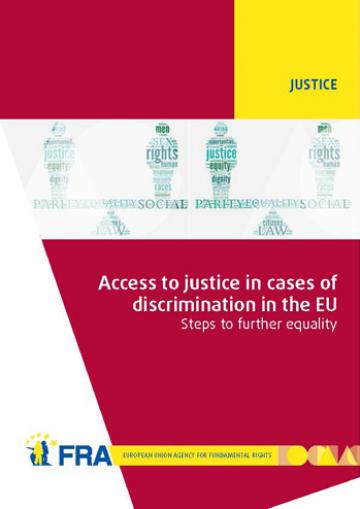Língua
English

It also considers the factors that best enable effective remedies, such as legal advice. In addressing these issues, access to justice is understood broadly. To capture the various models of access to justice in cases of discrimination across the EU, eight Member States were selected for closer scrutiny: Austria, Belgium, Bulgaria, the Czech Republic, Finland, France, Italy and the United Kingdom. In addition to the geographic spread, this selection presents a range of systems that diverge from each other in history, structure, scale and institutional mandate. The report explores how aspects of these different systems can be enhanced and applied more broadly across the EU.